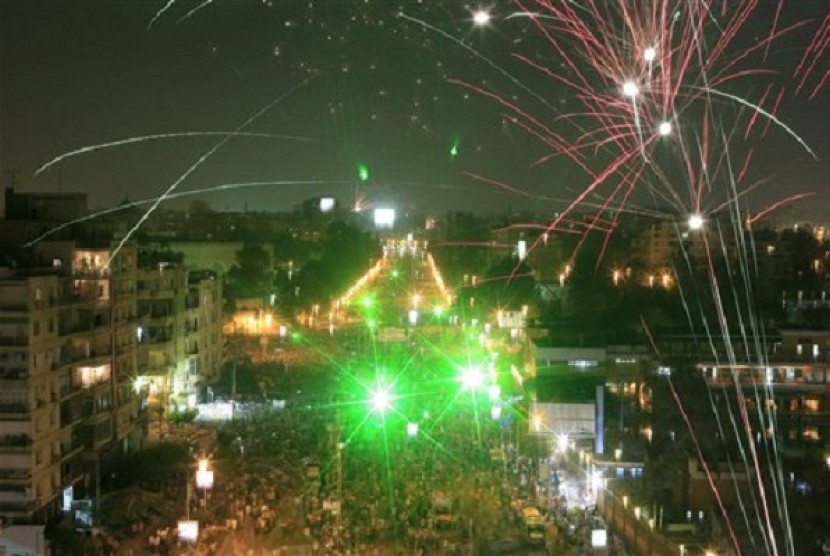REPUBLIKA.CO.ID, CAIRO - Feuding erupted within Egypt's new leadership on Sunday as secular and liberal factions wrangled with Islamists who rejected their choice for prime minister, stalling the formation of a new government after the military's ouster of President Mohammed Mursi.
At the same time, the shows of strength over the removal of Egypt's first freely elected president were far from ending, with tens of thousands in the streets Sunday from each side. The military deployed troops at key locations in Cairo and other cities amid fears of renewed violence.
The Muslim Brotherhood pushed ahead with its campaign of protests aimed at forcing Mursi's reinstatement, bringing out large crowds in new rallies. Its officials vowed the group would not be "terrorized" by arrests of their leaders and the shutdown of their media outlets.
The Brotherhood's opponents, in turn, called out large rallies in Tahrir Square and other squares in Cairo and several cities to defend against a counter-push from Mursi's supporters. Military warplanes swooped over the crowd filling Tahrir, drawing a heart shape and an Egyptian flag in the sky with colored smoke. Two days ago, clashes between the rival camps left at least 36 dead and more than 1,000 injured nationwide.
Senior Brotherhood members Saad Emara said there was no possibility for any negotiations with the new leadership after "all betrayed us," and following the military's clampdown on the group.
"We are not regressing to a Mubarak era but to ... a totalitarian regime," he told the Associated Press. "Anything other than protest is suicide."
Mursi and five top Brotherhood figures are currently in detention, and around 200 others have arrest warrants out against them. The group's TV station and three other pro-Mursi Islamist stations were put off the air. Among those detained is Badie's deputy Khairat el-Shater, seen as the most powerful figure in the group and its main decision-maker.
The wrestling over the prime minister spot underlined the divisions with the collection of factions that backed the military when it pushed Mursi out of office on Wednesday and installed a senior judge, Adly Mansour, as an military's choosen president.
At center stage of the feuding is the ultraconservative Salafi al-Nour Party, the sole main Islamist faction that sided with the mainly secular groups that led the charge against Mursi. On Saturday, the party blocked the appointment of reform leader Mohammed ElBaradei, a favorite of liberal, leftist and secular groups, as prime minister.
The prime minister is to be the real power in whatever interim government emerges, since the president's post will be largely symbolic. The prime minister will also likely have strong influence on the process of writing a new constitution.
Meanwhile Khaled Galal, a young bearded man in a skull cap, called the army's actions the "rape of legitimacy."
"Muslims aren't allowed democracy, and when we pick up weapons to defend it we get called terrorists," he said.


